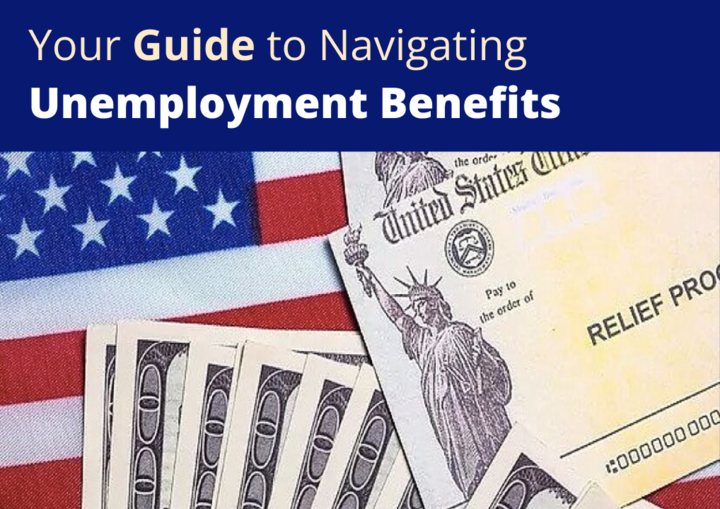Estate planning is a critical process that involves organizing an individual’s assets and determining how they will be distributed upon death. It encompasses a variety of legal documents, including wills, trusts, and powers of attorney, all designed to ensure that a person’s wishes are honored and that their loved ones are taken care of after they pass away. Life insurance plays a pivotal role in this planning process, serving as a financial tool that can provide liquidity, cover debts, and ensure that beneficiaries receive the intended inheritance without undue financial burden.
Life insurance can be categorized into two main types: term life insurance and whole life insurance. Term life insurance provides coverage for a specified period, typically ranging from 10 to 30 years, while whole life insurance offers lifelong coverage with a cash value component. The choice between these types often depends on individual circumstances, including financial goals, family needs, and the overall estate plan.
By integrating life insurance into an estate plan, individuals can create a safety net that not only protects their loved ones but also addresses potential tax liabilities and other financial obligations that may arise after their death.
Key Takeaways
- Estate planning involves the management and distribution of an individual’s assets and wealth during their lifetime and after death, often utilizing life insurance as a key tool.
- Life insurance can be used to cover estate taxes, ensuring that beneficiaries do not have to liquidate assets to pay the tax bill.
- Life insurance provides financial security for beneficiaries by providing a tax-free lump sum payment upon the policyholder’s death.
- Life insurance can be used to equalize inheritances, ensuring that each beneficiary receives a fair share of the estate.
- Business owners can protect their assets by using life insurance to provide funds for the business in the event of their death.
Using Life Insurance to Cover Estate Taxes
Life Insurance as a Solution
Life insurance can provide a tax-free death benefit that can be used specifically to pay estate taxes. For example, consider an individual with a substantial estate comprised of real estate, investments, and business interests. Upon their passing, the estate may face significant tax liabilities that could necessitate the sale of assets to meet these obligations.
Preserving the Estate’s Integrity
By purchasing a life insurance policy with a death benefit equal to or greater than the estimated estate tax liability, the individual ensures that their heirs have immediate access to funds needed to cover these taxes without having to sell off valuable assets. This approach not only preserves the estate’s integrity but also allows beneficiaries to inherit the full value of their loved one’s legacy.
A Strategic Approach to Estate Planning
By incorporating life insurance into their estate planning strategy, individuals can mitigate the impact of estate taxes and ensure that their heirs receive the full benefit of their hard-earned wealth. This approach requires careful planning and consideration, but the benefits can be substantial, providing peace of mind for both the individual and their beneficiaries.
Providing Financial Security for Beneficiaries
Life insurance is fundamentally designed to provide financial security for beneficiaries in the event of the policyholder’s untimely death. The death benefit paid out by a life insurance policy can serve various purposes, from covering everyday living expenses to funding education or paying off debts. This financial cushion can be particularly crucial for families who rely on the deceased for income or support.
For example, a young family with children may find themselves in a precarious situation if one parent passes away unexpectedly. The surviving spouse may struggle to maintain their standard of living while also managing childcare and household responsibilities. A life insurance policy can alleviate some of this burden by providing a lump sum that can be used to cover mortgage payments, childcare costs, and other essential expenses.
This financial support allows the surviving family members to grieve without the added stress of immediate financial instability.
Utilizing Life Insurance to Equalize Inheritances
In families with multiple children or beneficiaries, ensuring equitable distribution of an estate can be challenging, especially when certain assets hold more sentimental or monetary value than others. Life insurance can be an effective tool for equalizing inheritances among heirs who may not receive equal shares of physical assets. By designating specific amounts of life insurance benefits to certain beneficiaries, an individual can create balance within their estate distribution.
For instance, if one child is set to inherit a family business while another receives cash or investments, the parent can purchase a life insurance policy that names the non-business inheritor as a beneficiary. This way, when the parent passes away, the child who inherits the business will also have an equivalent financial benefit from the life insurance policy, ensuring that both children receive equal value from their parent’s estate. This strategy not only promotes fairness but also helps prevent potential conflicts among siblings regarding perceived favoritism or unequal treatment.
Protecting Business Assets with Life Insurance
For business owners, protecting their enterprise is often as important as securing personal assets. Life insurance can play a vital role in safeguarding business interests by providing funds that can be used for various purposes upon the owner’s death.
One common application is through buy-sell agreements funded by life insurance policies.
These agreements stipulate how ownership shares will be transferred in the event of an owner’s death, ensuring business continuity and stability. Consider a partnership where two individuals co-own a successful company. If one partner unexpectedly passes away, the surviving partner may face challenges in maintaining operations while also dealing with the deceased partner’s estate.
By having a buy-sell agreement in place funded by life insurance, the surviving partner can use the death benefit to purchase the deceased partner’s shares from their estate.
This arrangement not only provides liquidity but also ensures that the business remains intact and under the control of those who are actively involved in its management.
Creating a Charitable Legacy with Life Insurance
Supporting Causes beyond One’s Lifetime
Many individuals wish to leave a lasting impact on their communities or support causes they are passionate about after their passing. Life insurance can facilitate this desire by allowing policyholders to designate charitable organizations as beneficiaries. This approach enables individuals to make significant contributions without depleting their current assets or affecting their heirs’ inheritances.
A Philanthropic Legacy through Life Insurance
For example, an individual who has supported a local nonprofit throughout their life may choose to purchase a life insurance policy with the organization as the beneficiary. Upon their death, the nonprofit receives a substantial tax-free death benefit that can be used to fund programs or initiatives aligned with its mission.
Creating a Lasting Legacy
This strategy not only fulfills the individual’s philanthropic goals but also creates a legacy that continues to benefit others long after they are gone.
Using Life Insurance to Fund a Trust
Trusts are powerful estate planning tools that allow individuals to manage and distribute their assets according to specific terms and conditions. However, funding a trust often requires liquidity, which is where life insurance comes into play. By naming a trust as the beneficiary of a life insurance policy, individuals can ensure that there are sufficient funds available for the trust’s purposes upon their death.
For instance, consider an individual who establishes a trust for their children’s education expenses. By purchasing a life insurance policy and naming the trust as the beneficiary, they guarantee that funds will be available for tuition and related costs when needed. This arrangement provides peace of mind knowing that even if unexpected circumstances arise, such as premature death or financial hardship, the trust will have access to resources necessary for fulfilling its intended purpose.
Considering the Role of Life Insurance in Long-Term Care Planning
As individuals age, concerns about long-term care become increasingly relevant. The costs associated with nursing homes or assisted living facilities can be exorbitant and may deplete savings intended for heirs. Life insurance can serve as a strategic component of long-term care planning by providing funds that can be used for these expenses or by offering riders that allow policyholders to access benefits while still alive.
For example, some life insurance policies come with accelerated death benefit riders that permit policyholders to withdraw funds for long-term care needs if they become chronically ill or disabled. This feature allows individuals to utilize their life insurance policy as a resource for covering care costs without having to rely solely on savings or government assistance programs. By incorporating life insurance into long-term care planning, individuals can maintain greater control over their healthcare decisions while also preserving their estate for future generations.
In summary, life insurance is not merely a safety net; it is an integral part of comprehensive estate planning that addresses various financial concerns and goals. From covering estate taxes and providing security for beneficiaries to equalizing inheritances and protecting business interests, life insurance offers versatile solutions tailored to individual needs and circumstances. As families navigate complex financial landscapes and strive to leave meaningful legacies, understanding how life insurance fits into their broader estate plans becomes essential for achieving peace of mind and ensuring lasting impact.
Life Insurace Powered By eFinancial
FAQs
What is estate planning?
Estate planning is the process of arranging for the management and distribution of a person’s assets and affairs after their death. This typically involves creating a will, establishing trusts, and making other arrangements to ensure that the individual’s wishes are carried out and their assets are distributed according to their wishes.
What is life insurance?
Life insurance is a contract between an individual and an insurance company, where the individual pays premiums in exchange for a lump sum payment to their beneficiaries upon their death. This payment, known as the death benefit, can provide financial security to the individual’s loved ones after they pass away.
How does life insurance fit into estate planning?
Life insurance can play a crucial role in estate planning by providing a source of funds to cover estate taxes, pay off debts, and provide for the financial needs of the individual’s beneficiaries. It can also be used to equalize inheritances among heirs, especially in cases where certain assets are difficult to divide.
What are the benefits of using life insurance in estate planning?
Using life insurance in estate planning can provide liquidity to the estate, ensuring that there are funds available to cover expenses and taxes without having to sell off assets. It can also provide a tax-free source of income to beneficiaries and help preserve the value of the estate for future generations.
What are the different types of life insurance that can be used in estate planning?
The two main types of life insurance that can be used in estate planning are term life insurance, which provides coverage for a specific period of time, and permanent life insurance, which provides coverage for the individual’s entire life and includes a cash value component that can be used during their lifetime.
What are some considerations to keep in mind when using life insurance in estate planning?
When using life insurance in estate planning, it’s important to consider the specific needs and goals of the individual and their beneficiaries, as well as the tax implications and potential impact on the overall estate plan. It’s also important to regularly review and update the life insurance policy to ensure it aligns with the individual’s current circumstances and wishes.







